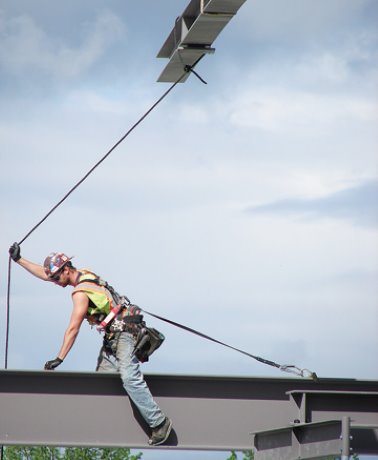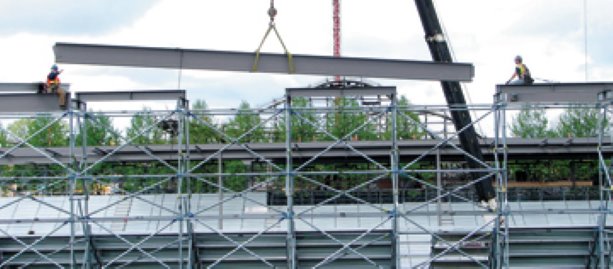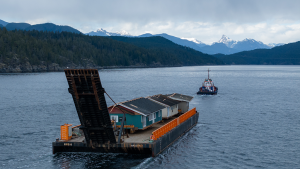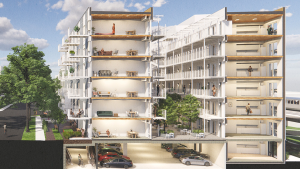A European company is setting a new standard for modular stadium construction in North America, as the temporary home of the BC Lions and Vancouver Whitecaps is quickly taking shape.
Modular building
VANCOUVER
A European company is setting a new standard for modular stadium construction in North America, as the temporary home of the BC Lions and Vancouver Whitecaps is quickly taking shape.
“We do this kind of thing all the time in Europe, but this is the first time we have built a temporary stadium structure like this in North America,” said Martin Blackburn, the Vancouver office branch manager for Nussli Special Events (Canada) Ltd.
“For sure, this is a showcase for the temporary building sector in North America and all the technology has come from Europe.”
Switzerland-based Nussli is an international supplier of temporary structures and modular stadiums for events, trade fairs and exhibitions.
The company signed a contract with BC Pavilion Corporation (PavCo) for the construction of a temporary stadium at the former site of Empire Stadium on the Pacific National Exhibition site.
“Our bid was based on a short design phase, small procurement phase, going straight into construction and a short dismantling time,” said Blackburn. “Sustainability was important. All the seating and every component is made of material that is 100 per cent reusable.”
Empire Fields will be a 27,500 seat modular stadium that is built to replace BC Place, during construction of its retractable roof.
“The modular solution is best described as a giant and very serious Meccano set,” said Blackburn.
“It comes in thousands of components, which are delivered in a container and put together by a skilled crew.”
He said it was necessary to bring in about 30 skilled workers from Germany and Switzerland to assemble it.
“The main advantage of modular stadiums is the client does not have the cost of building a new facility and they can rent the stuff from us,” said Blackburn.
“There is a clear cost advantage and PavCo does not have the liability of owning the stadium. We just remove it when the contract is done.”
The stadium will have a roof on the straight sides and includes 12 suites for 20 people each, commentator boxes for radio and TV, along with press seating, floodlights, lighting and cladding.
Construction began in March when material and grandstands were delivered to the compound, after being brought down from the Olympic Winter Games mountain venues.
The material in the Olympic venues represented about 25 per cent of the product that was needed, with the rest coming from Switzerland.
Blackburn said the main challenge for construction is logistics, because 75 per cent of the material had to be imported and the travel time is about six weeks.
“The only thing different between the product in Europe and North America is the roof sections, because they have to be designed to deal with seismic loading,” he said.
Abbotsford-based Clearbrook Iron Works was contracted by Nussli to ensure the 400-foot long sections of roofing on both sides of the stadium meet B.C.’s building and seismic codes.
“In keeping with the temporary nature of the stadium, the roof is not too elaborate,” said Clearbrook co-owner Neil Schellenberg. “Its different working over prefabricated bleachers, but technically it’s a conventional structure.”
The steel-framed, metal-clad roof is designed to withstand wind and snow loads. There will be about ten people installing the roof, which will take two weeks for each side.
According to Schellenberg, the main challenge on this project is the ambitious construction schedule.
“One reason that we were able to meet such an ambitious schedule is because we have a 3D modeling capacity,” he said.
“The key to the whole process is that everything is detailed in a 3D model, which feeds computer numeric control data to machinery. The detailed drawings transmitted data electronically to the machinery and equipment.”
Construction is scheduled for completion on June 15 and the Lions’ have their first game at the facility five days later, in a June 20 CFL pre-season game against the Edmonton Eskimos.
The cost to build and remove the structure is US$14.4 million, which was budgeted for, as part of the BC Place upgrades.
When BC Place is ready for occupancy, the temporary stadium will be completely dismantled in eight to 10 weeks.












Recent Comments
comments for this post are closed